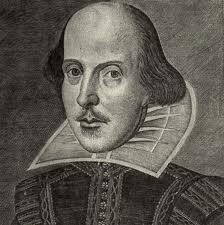
How old do you think those children were, debating Shakespeare, comparing two great plays? They were 10.
Inspiration often comes from unexpected places. Thursday night, for the education reform crowd, it came from Michael Gove. He’s the education secretary in England, and he was the keynote speaker for the Foundation for Excellence in Education conference in Boston. If people didn't know who he was before, well, they do now.
Gove's speech was that good, touching on everything from teacher quality to principal autonomy to England's version of charter schools. I'll post it in its entirety when it surfaces. In the meantime, here’s a transcript of the kicker – an explanation and an anecdote about what Gove argued is the most important thing in ed reform.
If you’re rich or wealthy, if your parents are well-connected … you have the option to go to camp. You have the opportunity to visit the theater or the art gallery. You’ve been read to every night. You have the pick of all the books at Barnes & Noble. Who knows? You may very well have your own iPad mini, to be able to download the latest Harry Potter. Everywhere you go, you’re surrounded by an environment and an atmosphere that wants you to do well, and which opens the glory of what’s been written or created to your enjoyment.
But if you’re a poor child … there aren’t those connections. There isn’t the money to go to the museum or the art gallery or the theater. The only place that you will get access to the greatness of human civilization is in school. So we betray those poor children. What do we say? That the greatness of literature, or the wonder of history, or the majesty of poetry, or the tremendous language that is mathematics, or the discoveries of science, shouldn’t be introduced to them, because it’s all too hard and irrelevant to their lives? We rob those children of the inheritance to which they are due, if we dumb down our curriculum, if we lower our expectations, and if we refuse to give those children the challenging diet of great writers, great thinkers and great creative that we know can inspire them to greatness in turn.
And that’s why the most important thing in education reform is to believe that every child is capable of greatness. And to behave in every way as if you know that to be true.
I was recently in a school in West London. And I walked into the class and the class was discussing Shakespeare. They were discussing the play ‘Julius Caesar.’ And I asked the children, ‘Why is it that Julius Caesar is murdered?’ One of the boys put his hand up. ‘Because the Roman Senate, sir, thinks he might be an usurper. They think he might be someone who does not have a legitimate claim to the crown, or to be emperor.’ I thought that was an amazing answer, with a great understanding of the play. And I said, ‘Usurper, that’s a wonderful word. Is there anyone else who can think of another usurper?’ All the hands went up. I picked one at random and he said, ‘Macbeth, sir. Macbeth kills Duncan. And he is an usurper as well. He doesn’t have legitimacy. He should not be wearing that crown.’
How old do you think those children were, debating Shakespeare, comparing two great plays?
They were 10.
Maybe these 10-year-old children in West London were the … Earl of Bradford’s little ones. Actually they weren’t. They were in a school where more than half the children were eligible for free lunches. Many of them were the children of Somali and Kosavar-Albanian miners. Many of them came from homes where English was not spoken as a first language.
But because the teachers in that school believed that the English language was precious, English culture was for everyone who came to our shores, and that Shakespeare had a penetrating insight into the human condition, which every human being could enjoy and appreciate, they treated those children, those students at the age of 10, as scholars. And that is what every child in that school was called by the headmaster: A scholar.
One day, every school will be like that school.